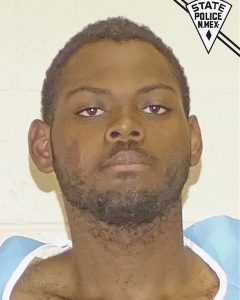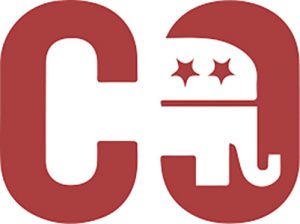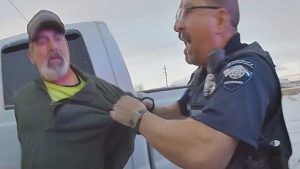by Nancy Christofferson
TRINIDAD — He came, he saw, he got involved. He was Dr. Michael Beshoar. Beshoar was Pennsylvania Dutch, born in 1833. After graduating from medical school at the University of Michigan in 1853, he took up land in northeastern Arkansas. There he built up a thriving practice and served in the state legislature. He married and was widowed twice. With the onset of the Civil War, he enlisted in an Arkansas regiment to serve the Confederate States of America as chief surgeon during some of the war’s bloodiest battles. In 1863 Beshoar was captured by Union soldiers and sent to Missouri as a prisoner of war. There he began assisting the U.S. Army with its wounded, and in March 1865 he was sent by the Army to Fort Kearney in Nebraska Territory. He thus served both the Confederate and the Union forces. In January 1867 he quit the service and moved to Denver, Colorado Territory. He found the hostility against Southerners still simmering, and moved on to Pueblo where former Confederates were welcome. He found some old friends in Pueblo, including John and Mahlon Thatcher, who encouraged him to establish a medical practice. He did, and also started the first drug store there, the only one between Denver and Santa Fe. His store on Santa Fe Avenue offered not just patent medicines but his own concoctions, toilet articles, fishing tackle, fine liquors, tobacco, stationery and even garden seeds. Meanwhile, he had decided to move to the wild and woolly, just emerging, town of Trinidad, where he opened another drugstore, and ran for the state legislature. He operated his stores in both places as well as continuing his medical offices, commuting by stagecoach between the two towns. In 1868 Beshoar noted and acted upon another need in the community – that of a newspaper. So he founded what became the Pueblo Chieftain. The first issue carried the news of the death of old soldier and scout Kit Carson, which Dr. Beshoar had warned of just two months earlier when Carson consulted him. In 1867-68, the Indian problem was so serious on the southern plains that stagecoaches ran only at night, escorted by soldiers. The commute became so tedious, Beshoar sold out his interests in Pueblo and moved to Trinidad to stay in 1869. He had taken note of the coal deposits in the area as well as some near Aguilar, and invested in land for future development. Eventually he owned ranch lands east of Trinidad, coal land around Gray Creek, town lots and held many homestead claims in Las Animas, Huerfano and Pueblo counties. He rented rooms in the city, and took his meals at Red Bransford’s boardinghouse. He became friends with William Bransford, the postmaster, as well as Felipe Baca, Judge Spruce Baird, the local priests and others. Many were drinking and gambling buddies. Beshoar opened the El Dorado billiard hall and started the Trinidad Advertiser. In 1872 Beshoar married Annie Maupin, an old acquaintance from his time in Missouri. Together they parented five children, though only four survived to adulthood. One of his sons followed him as a doctor, the other became a dentist. Despite having a wife and children, Beshoar continued his myriad activities in the community. Between 1870 and 1885 he had been state legislator, and clerk, school superintendent, coroner, assessor, judge and physician for the County of Las Animas. For the city, he served as health officer, president of the school board and held other offices. He was active with the Masonic Lodge, which he helped to charter, and Knights of Pythias. At one point he was Grand Chancellor of the KP for the Rocky Mountain region. Later, he joined the Elks. About the time of his marriage, Beshoar helped form the Las Animas Railway and Telegraph Company in anticipation of the coming of a railroad, for which he served as vice president and director of the board. In 1873 he was a part of the “Committee of Safety”, a vigilante organization of 15 members formed to assist law officers and insure justice. He organized and incorporated the Rocky Mountain Medical Society in 1874 for physicians of southern Colorado and northern New Mexico. The railroad finally arrived in Trinidad in 1878 though it was not Beshoar’s company’s – it was the Atchison, Topeka and the Santa Fe. Through the years, the doctor also founded a steam laundry, a brickyard and hired a young militia man named Damon Runyan for his newspaper. He was a member of the State Board of Health. He launched the Trinidad Oil Company, the monthly Medical Educator to explain new discoveries and the importance of hygiene to the layman, and successfully bought and sold real estate. He owned the first buggy to appear in Trinidad. One of his less successful endeavors was with the Trinidad and San Juan Short-Route Waggon Road. The goal was to build a road through a mountain pass between the headwaters of the Purgatory River and the San Luis Valley to save a hundred miles or so of travel. During a serious smallpox epidemic in 1877, Beshoar traveled the county and inoculated hundreds of adults and children. Of the 1,000 who contracted the disease, 400 died. It would have been many more without the vaccine. Beshoar built a two-story, adobe house at 611 East Main Street in Trinidad. The grounds included three small cabins for servants and in-laws and was surrounded by high walls to keep out the stray horses, cows and burros roaming the streets. When President U.S. Grant visited overnight in 1880, Beshoar was on the welcoming committee and sat at the head table with government dignitaries during Grant’s banquet. In 1884 Beshoar started the Cattlemen’s Advertister, a monthly, and El Anunciador, a Spanish weekly newspaper. He was still editing the Advertiser. Once the Santa Fe railroad was well established, Beshoar was the local company physician. He was also physician of record for six insurance companies. Then he invented a railroad street-crossing guard and sold the patent to the Santa Fe. One of Beshoar’s homestead claims was for 160 acres within city limits. When the Catholic sisters began a fundraising campaign for a hospital, Beshoar donated 35 acres to the cause. The nuns wanted to call the place “St. Michael’s” in his honor but he left town on a long vacation so when Fr. Machebeuf came for the groundbreaking, he named hospital for another generous donor, Rafael Chacon. Beshoar was considered a bit of a busy body, approaching strangers and acquaintances on the street and asking their business. This stemmed from being a small town editor ever hopeful for the odd news item. He also advocated the use of alcohol as a means for older people to retain their vigor. During the 1903-04 coal strike when miners were trying to unionize, Beshoar was a staunch and vocal supporter, both personally and in his newspaper, of the working men. In 1905 he was honored as Colorado’s longest practicing doctor. Beshoar, with Richens Lacy “Uncle Dick” Wootton, had founded the Old Settlers Association. Beshoar was the longtime president and during each annual gathering in the fall, he would give his farewell speech. In 1906, he delivered his final farewell. He died at home September 5, 1907.




